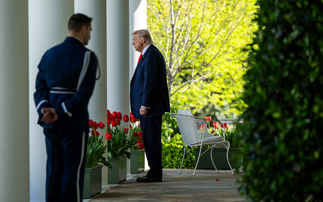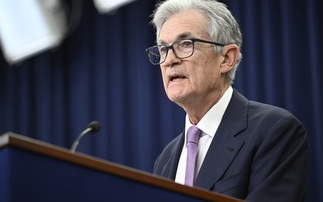In this second of a special three-part Big Question, managers tell Investment Week that investors need to keep a more vigilant and realistic eye on the economy now that Donald Trump has begun his first term as US President.
Andrew Acheson, head of the US Growth equity team at Pioneer Investments
Wary of risks
The market has priced in all the good things that may be ahead in a Trump presidency, including tax reform, the rollback of burdensome regulations, and additional infrastructure spending. All of these are pro-growth policies that would be good for the stockmarket.
But investors have not focused on some of the risks, including Trump's trade policy. His proposal for border taxes may lead to retaliatory actions.
Also, Trump's pro-growth policies at this late stage of the business cycle may lead to a short-term increase in inflation, which could lead to accelerated interest rate increases by the Fed. This could be detrimental to market valuations, particularly cyclical and highly leveraged stocks.
We would hope that the optimistic scenario plays out, but history tells us that we need to be wary of the risks.
Dave Eiswert, manager of the T. Rowe Price Global Focused Growth Equity fund
Expect some policy U-turns
The question many are wrestling with is whether Trump's presidency will be defined by a focus on the populist policies that carried him to victory or traditional republican policies that may help to stimulate the US economy.
In general, the market has narrowed its focus on traditional Republican policies, and so far, we have seen much more of Trump the Republican versus Trump the populist. This is a positive, but the key question is whether this reality holds, especially under the pressures that will follow.
In the near term, we think it makes sense to hold at least enough dry powder to take advantage of the occasional presidential 'Tweet Storm' that may rattle singular stocks or industries.
We would caution that it is important not to forget there is an element of honeymoon around US politics at present. The best days to be buying stocks were in the first few days after the election result, and even better, in the period before the result.
We would emphasise that there is a need to think longer term and potentially trim some of the initial winners, as policies become more distinct from the promises of an election campaign that became extreme by anyone's measure.
Freddie Lait, founder and chief investment officer at Latitude Investment Management
Hyperbolic discounting
The markets have demonstrated an unlikely resilience in the face of continued uncertainty surrounding Trump's election. They have responded to the immediate effects of his victory, most pertinently the higher level of expected inflation and implied growth rates, while ignoring the less tangible future impacts of policy uncertainty and rising international tension.
This 'hyperbolic discounting' - the tendency to allow nearer, more certain, inputs to have an outsized impact on market pricing) - is a common behavioural bias and tends to lead to mispricing of uncertainty and, as a result, large divergences from fair value.
The rotation into cyclical and value stocks currently continues apace, although there are signs that this is levelling out. This is justified by the expected increase in uncertainty, and investors would be wise to diversify the underlying cyclical factor risk within their portfolios towards companies with acyclical earnings streams and those with higher levels of idiosyncratic risk.













